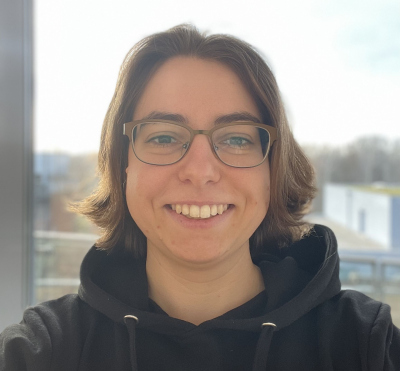- Graduate School GLOMAR
- PhD student members
- Linda Biehler
Linda Biehler
| Institution: | Max Planck Institue for Marine Microbiology |
| Office: | BIOM, room 3770 |
| Phone: | +49 421 218-63075 |
| E-mail: | [Bitte aktivieren Sie Javascript] |
| Other webpage: | Linda's MPI-MM webpage |

Reactivity and capabilities of marine polysaccharides produced by algae and their role in the ocean carbon pump
Algae can fix gigatons of CO2 from the atmosphere in carbohydrates by producing polysaccharides. Due to the ocean carbon pump, those polysaccharides can sink and sequester CO2 in the deep sea. Nevertheless, not all polysaccharides can withstand bacterial degradation on their way down in the water column. The structural characteristics polysaccharides require to be recalcitrant towards bacterial degradation are mostly unknown.
Other abundant polymers in the ocean are proteins. Bacteria design a vast number of proteins and enzymes for a variety of applications. To degrade one type of polysaccharides bacteria may need over 20 different enzymes. The way bacteria produce and apply their proteins is an ongoing topic of study. The focus of those studies is mostly on proteins, but little is known about how interactions between proteins and polysaccharides affect the stability of carbohydrates.
My PhD thesis aims to elucidate the reactivity and abilities of marine polysaccharides, and how interactions with proteins decrease or increase their stability throughout the water column.
Thesis Committee
| Prof. Dr. Jan-Hendrik Hehemann | University of Bremen, MARUM - Center for Marine Envrionmental Sciences and Faculty of Biology and Max Planck Institute for Marine Microbiology (MPI-MM), Bremen |
| Dr. Lauren McKee | KTH Royal Institute of Technology, Stockholm, Sweden |
| Dr. Conor Crawford | Max Planck Institute of Colloids and Interfaces, Potsdam |


